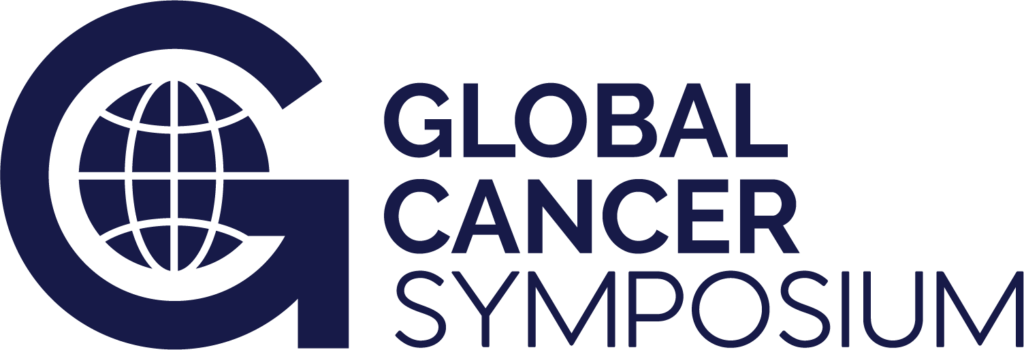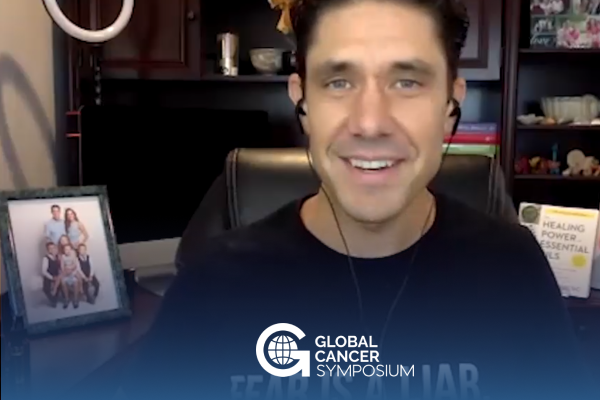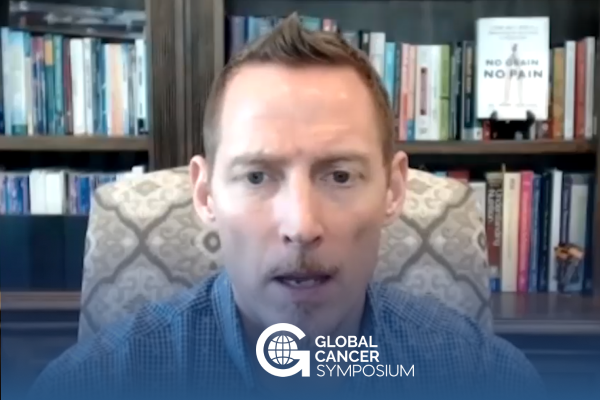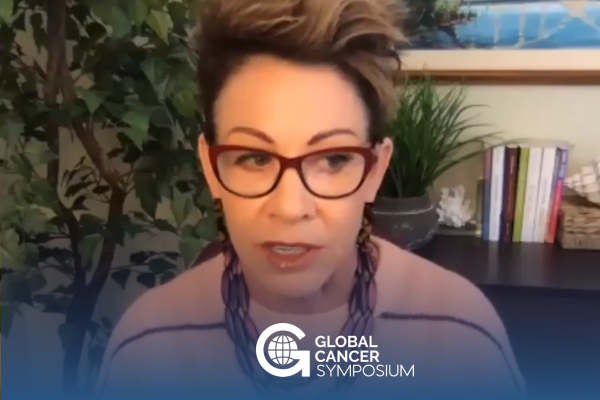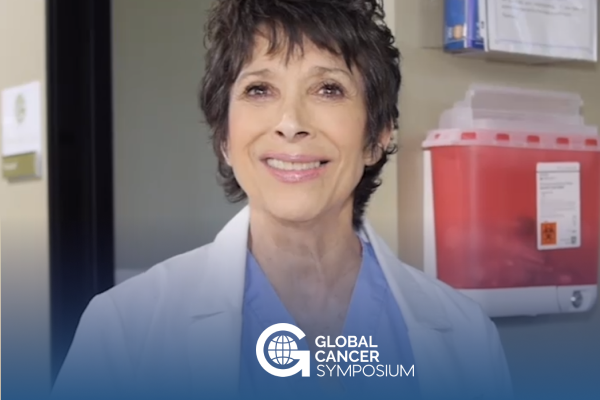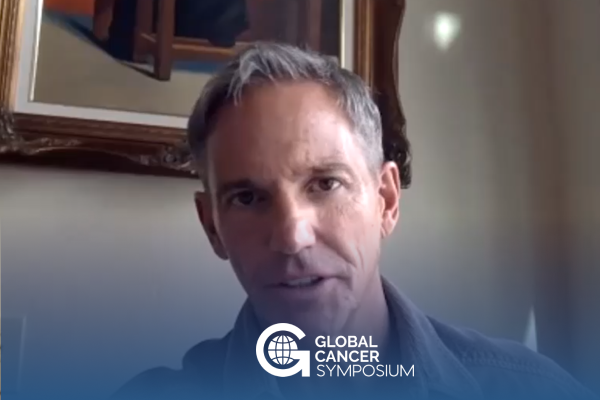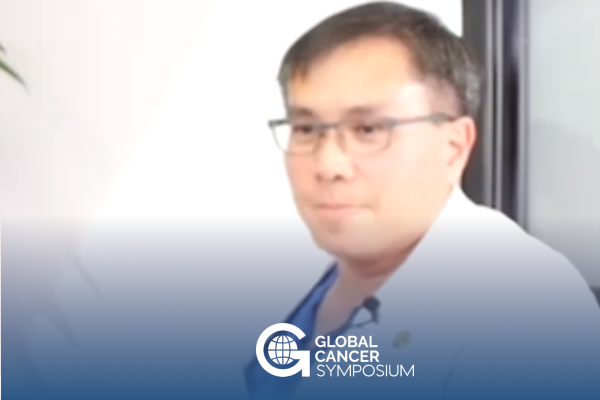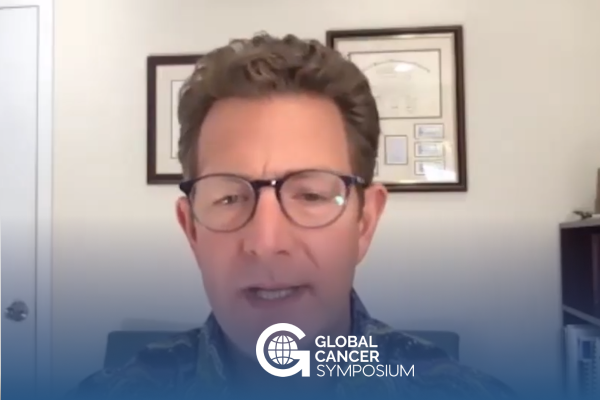Join the discussion below
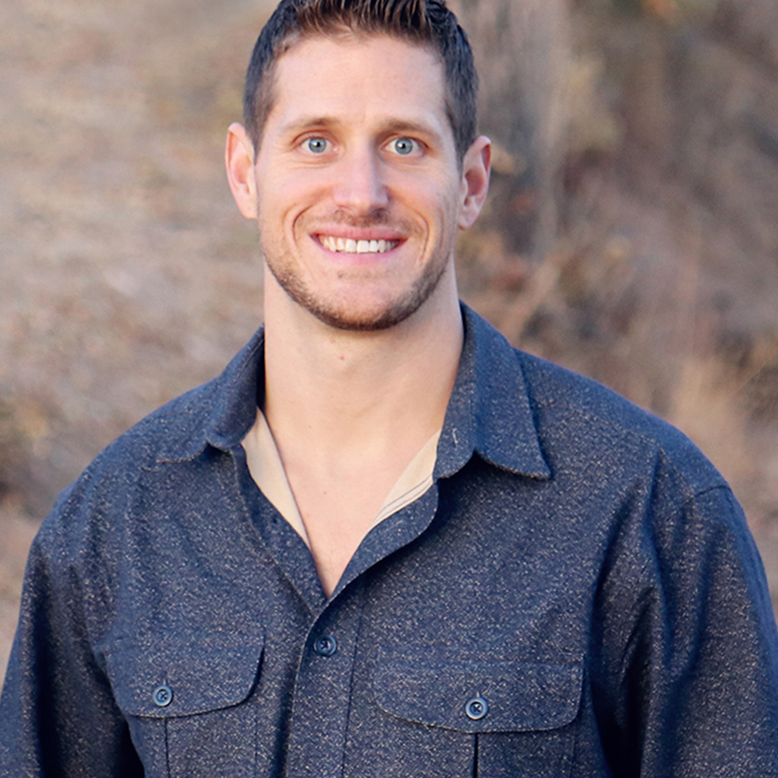
Nathan Crane is an award-winning author, inspirational speaker, plant-based athlete, event producer and 18x award-winning documentary filmmaker. Nathan is the Founder of The Panacea Community, Creator of the Global Cancer Symposium, and Director and Producer of the documentary film, Cancer; The Integrative Perspective. He is also the Director of Strategic... Read More
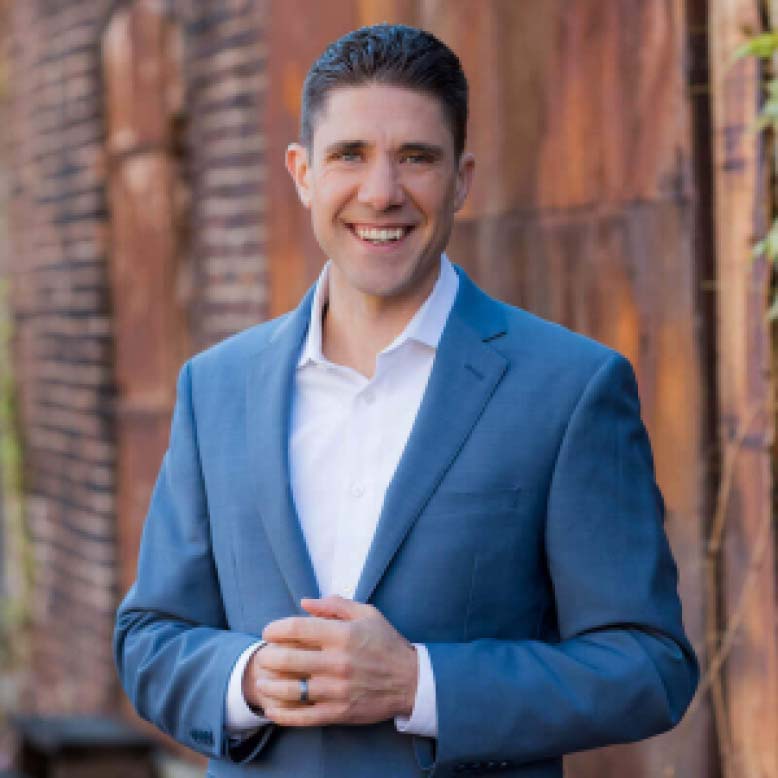
DR. ERIC ZIELINSKI is the author of the national bestseller The Healing Power of Essential Oils and The Essential Oils Diet Dr. Z has pioneered natural living and biblical health education since 2003. Trained as an aromatherapist, public health researcher, and chiropractor, Dr. Z started NaturalLivingFamily.com in 2014 with his... Read More
- The six essential oils that give you a super-charged immune system
- The ancient practice the Japanese use to naturally enhance their immunity
- How to make your own healthy sanitizers, soaps, and detergents with essential oils and other safe, natural ingredients
Related Topics
Absorbability, Angela Lima, Animal Studies, Cancer, Carrier, Chemotherapy, Consciousness Healing, Contraindications, Essential Oils, Faith, Fear, Holistic Approach, Hope, Hope For Breast Cancer Documentary, Human Studies, Immunity, Immunotherapy, In Vitro Studies, Inflammation, Integrative Approach, Interview, Liposomal Technology, Love, Medicinal Therapy, Netflix Documentary, Nocebo Effect, Placebo Effect, Radiation Therapy, Research, Side Effects, TruthNathan Crane
Hello, everybody, and welcome to the Global Cancer Symposium 2.0. My name is Nathan Crane. I’m the award-winning filmmaker of “Cancer: The Integrative Perspective, as well as the Director of the Health and Healing Club, which you can learn more about after this interview at healthandhealingclub.com. And today, I’m super excited that we’re talking with Dr. Eric Zielinski about essential oils for anti-aging, reducing inflammation, and enhancing the immune system. Let me read Dr. Zielinski’s bio for you here, and we’ll bring them into the interview: Dr. Eric Zielinski, fondly known as Dr. Z, is the author of the national best seller “The Healing Power Of Essential Oils” as well as “The Essential Oils Diet.” Dr. Z has pioneered natural living and biblical health education since 2003. Trained as an aromatherapist, public health researcher, and a chiropractor, Dr. Z started naturallivingfamily.com in 2014 with his wife, to help people learn how to use natural remedies, like essential oils, safely and effectively. Now visited by more than five million people every year, naturallivingfamily.com has rapidly become the number one online source for biblical health and non-branded essential oils education. Eric, thank you so much for joining us, brother.
Eric Zielinski, D.C.
Well, you’re welcome, and thank you. This is an honor and a privilege. I love chatting with you, and we always seem to have something special between us in sharing. I’m excited about this one. I’m going to be sharing something, hopefully, we get the chance to share something that I’ve never shared before in an interview. And we got a lot of good stuff to cover.
Nathan Crane
So I love your shirt, “Fear is a Liar.” Tell me what that means to you.
Eric Zielinski, D.C.
Man, you know, there’s this wonderful acronym, I’m sure you’ve heard of it, False Evidence Appearing Real, FEAR, F-E-A-R. And you know, when the outbreak started, fear gripped the world and it is impossible, it is impossible to see truth when we’re looking at it through the lens of fear, which is the exact opposite of faith, which is the exact opposite of hope. You know, the Bible says, “Perfect love casts out all fear.” And when you see the lack of love, and when you see the hatred and when you see the emotion that had came up out of this outbreak, this situation, this crisis, it was totally opposite of what we should be experiencing as humans. So my wife got me this shirt. I’m like, “I love it,” I really do. It’s a great talking point, it’s a great icebreaker when you walk out and when you go to the store, and look at people, people are like high five, thumbs up, “Yeah, brother, I get it.” Other people look at you like you’re crazy.
But it’s like, you know what? Fear is a liar. And I want to encourage us all, you know, regardless of where we’re at, and the thing is, you know, Nate, this is going to be airing when, in 2021? People hopefully are going to be listening and watching this for the next several years, right? If not decades, and that’s a wonderful thing about internet. Regardless of where we’re at, the effects of COVID-19 are not going to stop. And we are going to see the reverberations of this for many, many years and generations to come. It was cataclysmic. And so to go back to faith, to go back to love, to go back to truth is key. So it’s my little, it’s my story and I’m sticking to it.
Nathan Crane
I love it. You know, we’ll cover this subject in much more depth in some of our other interviews, but it’s worth mentioning here is when we’re talking about the immune system, which we’re going to talk about today, fear actually inhibits the immune system. Whereas love, tranquility, relaxation, meditation, even, you know, the use of essential oils, some of the things that you’re going to be sharing, upregulate the immune system. So being aware of yes, fear as a survival mechanism to keep us alive, you’re hanging at the edge of a cliff, you’re afraid to die and you, you know, react instantaneously because your adrenaline shoots up and you’re able to save your life or save somebody else’s life, fear is useful.
For 99.9% of the rest of the time of our lives, like when a pandemic is here, or when a cancer diagnosis, when you receive that prognosis, or you’re constantly thinking about your life ending or the fear of tomorrow, that fear is actually very detrimental to the immune system and increases our risk for chronic diseases like cancer. So I love that, love that you’re kicking it off with a great shirt and I want to get into a little bit more about essential oils specific. I know that’s your specialty. You have so much great information on your website, so much research and experience with it. What kind of experience do you have or people you’ve talked to or worked with or heard from who’ve had cancer and have used essential oils as part of their healing regimen?
Eric Zielinski, D.C.
You know, they’re wonderful, they’re wonderful for a number of reasons. And congratulations on winning the awards for your documentary. And like we’ve talked before around the same time we came out with our documentary, “Hope for Breast Cancer”, and if someone wants to see a truly integrative approach of how someone approached cancer, in this case, Angela Lima approached stage two breast cancer very holistically, but also medically in this integrative balanced approach, essential oils were part of it from the very beginning, all the way through to the very end, even till today. And so the reality is we have to point out that there is no cure. And I think that’s important because I get criticized a lot for even answering questions like I am in the way that I am. And I’ve been criticized, and this burns me up, it really produces like an anger in me because of the lie, because of the fear that precipitates, that leads someone to even make this criticism is that we, my organization, my wife and I, have been openly criticized, especially from people in the aromatherapy community, for giving people false hope. Just chew on that for a minute. Is there any such thing as false hope?
Nathan Crane
No, no.
Eric Zielinski, D.C.
I mean really, when it comes down to it, how can you hurt somebody, how could you try to take away any string, any thread of hope when they’re hopeless? And in their mind they’re saying, “Well, there is no cure and you shouldn’t mislead or misguide people. And so someone might have false hope that they’re doing something that might make them better.” Well, maybe, but what about the well-known placebo effect and the opposite, the nocebo effect that if you believe something will help, it very well will help. And if you believe something won’t help, well, it very well will not help. It’s called self-proclaimed prophecy and it’s very medically documented in the literature.
Well, there’s that aspect, but what about the fact that we’re trying to help people get through the day? And we’re trying to help people, it’s what a doctor does, it’s what an oncologist does. Oncologists will give people hope, hopefully, and say, “Hey, here’s what we hope will happen after we treat you.” And so, Nate, I’m telling you, it burned me up when I first heard it. It kind of shook them to the core that people would actually think there is such a thing as false hope. But the reality is I’ve heard everything. I’ve heard from the gamut that “essential oils cured me.” Like people, literally, “nothing else worked and this helped.” And I’ve heard the other end where “eh, didn’t do anything, but at least it helped me sleep better at night.” And in the spectrum, from what I understand, there are virtually no contraindications, and that’s really key. And in the story “Hope for Breast Cancer,” and not to give a shameless plug, but if I could give a shameless plug, go to hopeforbreastcancer.com.
I mean, we offer a free screening of the film to bless people, it’s our ministry. And like Nathan, we are an award-winning documentary all over the world, international. It will inspire you and hopefully we’ll make you cry in a good way of hope. And you’ll hear Angela talking about how at first, her doctor wasn’t really supportive of natural therapies at all. And the knee jerk response from many oncologists is to say, “No, don’t do anything, don’t even take vitamin C, especially don’t take frankincense ’cause we don’t know what will happen if you’re taking a chemotherapy or an immunotherapy, or if you’re on radiation,” whatever it might be. And so by virtue of ignorance, not stupidity, please respectfully, ignorance, not knowing, most oncologists that recommend against, do it based out of fear. And based off of the fact that they don’t have the control. Well, I will counter that, and in our upcoming book, we have a book coming out in fall, September, 2021, I cover in depth, in depth, what the research suggests about essential oils. And there are literally hundreds of studies. Now we have animal studies, in vitro studies, cells in a Petri dish, and human studies, all about the whole cancer experience.
And one thing to say is that there are virtually no side effects and virtually no contraindications, as long as you’re using them properly. And in fact, some research suggests that using essential oils in conjunction with chemo or medicinal therapy, a.k.a. the integrative approach, will actually help the medicine do better, perform better. And we see that time and time again with other medications because essential oils act, essentially, as a carrier, helps with absorbability. It’s very much like the liposomal technology that people see with their vitamin C and supplements now. So all that to say is that it breaks my heart that I continually, continually get criticized. And we were just talking about the Netflix documentary ” Well” that we were featured in. The interviewer like challenged me. And the question was, and Nate, she was like drilling me. It was the hardest interview I’ve ever had in my life. I mean the whole scenario is like I’m sweating, oh it was so much funny, but I was literally sweating because it’s in the middle of Georgia, I’m sorry, in the middle of the summer in the heat of Georgia, 90 degrees outside, and the audio technician was so in tune with the sound, we couldn’t have my air conditioner on in Georgia.
So the air conditioning in my house was turned off, I’m sweating beads of buckets, the interviewer is like drilling me and she’s like, “Can essential oils cure cancer?” Like what kind of question is that? Like, you’re baiting me. Of course, if I say yes or no, I’m going to get criticized either way. So my answer was, you know, like that’s what people want. They want to get you. They want the gotcha moment. Well, my answer is, and always will be, “Well, I know people that say, ‘Yes.’ Like, they literally say, ‘Yes.'” These aren’t mega bloggers making billions of dollars on essential oils, these are people. My neighbors, my friends, my colleagues, people, like, you know and you meet at the store. They claim that yes, it helped. And some even claim “nothing else helped but this. And next thing you know, I don’t have cancer.” What am I going to say to that? I mean, what am I going to say? But can I prove it? No, I can’t prove it.
Has there ever been a clinical trial to evaluate 100 cancer patients and give them no therapy and 100 cancer patients and give them oils? No, no one would ever approve that kind of study. That would be a death sentence, and no one would ever approve that kind of study. So we’re never going to see that research. So the reality is this is a damned if you do, damned if you don’t situation, but I will tell you when it comes to symptom-based management, when it comes to helping people formulate their own healing protocol, man, you better consider natural therapies like essential oils because they will help. And that’s where you work with, hopefully, a solidly trained integrative oncologist who understands and will support you to make these decisions.
So you don’t have to go rogue like Angie in our movie who kind of did things without telling her oncologist. Like, how, not dishonest, but what a shame that we can’t be openly honest with our doctor, that many people do things. And that’s another thing we hear a lot from our community, Nathan, is that “I don’t feel comfortable telling my doctor.” Like, why is this person your doctor? I mean, your doctor should be a confidant of sorts. Like they are helping manage your life, your health. If you don’t feel comfortable telling your doctor that you want to diffuse some frankincense, that’s not the right person to be working with. And so that’s a really hard place to be for a lot of cancer patients. But thankfully, because of your work, and the work of other people, our mutual friends and Dr. Tony Jimenez and Chris Wark and Ryan Sternagel, all our mutual friends out there, Ty and Charlene Bollinger, all these people, we’re creating more awareness that there are different ways of looking at the model.
Nathan Crane
I’ve got to say, one, I absolutely love your passion on the subject, and I’m on the same page as you in terms of there’s no such thing as false hope. I’ve had the honor to actually meet and sit with and talk with and interview many people since 2013, who are living years and years past their prognosis because they never accepted what their doctor told them. Doctor said, “You have three months left to live. You have an end stage cancer. You could be dead in a month.” They said that, “There’s no hope for you. There’s nothing we can do.” And those people who live well past that prescribed expiration date, always have one thing, multiple things in common, but one of the main things in common that I’ve found is they don’t accept that prognosis, they don’t accept it, which means they still hold on to hope that there could be a solution, there could be a way, there could be a possibility, and more often than not, they do find things, ultimately and typically, through an alternative or an integrative approach that actually not only helps them live longer than that expiration date, but live a much more quality of life.
So I love that you brought that subject up because it is so critical. I also do want to say Dr. Thomas Lodi, who’s a medical doctor in Arizona, a colleague and a friend of mine I’ve worked with for many years, one of the things he says in my documentary “Cancer: The Integrative Perspective,” is, “There is a cure for cancer and that cure is the immune system.” And when you understand the immune system, and we’ll cover that in more depth in some other interviews, exactly what the immune system is, how it works, all of that, so make sure you go watch those interviews during the symposium, but he says, you know, “The immune system is a cure for cancer.” And without getting into the why of that, let’s talk a little bit about essential oils and their impact on the immune system. What are some of your top essential oils that you love, that you found create the most benefit for the immune system, and what are their effects? What do they do? And which ones are they?
Eric Zielinski, D.C.
You know, most essential oil companies have their immune boosting blends. And typically it’s a combination of oils that work very well synergistically together to promote immune function, to help reduce inflammation, to target pathogens including viruses and bacteria and fungi. And for us, you know, since we don’t promote one brand over another, if you’re looking to create your own immune boosting blend, you use equal parts, we recommend equal parts of clove bud, cinnamon bark, eucalyptus, lemon, orange, rosemary, and that’s it. Clove bud, cinnamon, eucalyptus, lemon, rosemary. And the wonderful thing is this is a beautiful blend to diffuse, you can ingest it properly if you’re using it with gel capsules.
Now, be careful, of course, if you’re using any sort of medication, especially blood thinners, because clove can interact with blood thinners and cause people, I mean, it’s a blood thinner in its own right so you don’t want to hemorrhage. I mean, there’s a lot of things that you need to consider before you just start taking oils like medicine, but topical application is relatively safe for everyone. You know, we have all the little tips and tricks on how to do it on our website safely. But in essence, aroma therapy as a whole, and this is where we were talking earlier before we got on, the concept of forest bathing comes into play.
And I want to read something from my book that’s coming out later this year because it was so impactful to me and I don’t want to misquote, so bear with me as I read a couple of notes here because on April 15th, 2020, again, this is in the heat, the middle of the lockdown. We all remember this, right? We all remember what was going on. You might not remember what you were doing, but you were pretty much at home wherever you were on April 15th, everyone around the world was home. Now, when most Americans and the world were under shelter in place and quarantine restrictions due to COVID-19, an MD, medical doctor, Roger Seheult, Dr. Roger Seheult, he has a pretty cool Facebook, a pretty cool YouTube channel. And he posted his coronavirus pandemic update, and he had several.
So this was update number 56. And I caught this guy, I caught onto this guy because a colleague said, “Hey, have you seen this? I thought of you.” I’m like, a chiropractor who I haven’t talked to in a lot of years said, “Hey, when I watched this, I thought of you.” Dr. Seheult’s update was what is forest bathing? And can it boost immunity against a virus? So it was a fascinating concept on introducing this idea of forest bathing, which is an ancient Japanese practice of simply being in nature. And so the word, and I might mispronounce it for folks that speak Japanese, please email and correct me the phonetic pronunciation so I don’t mess this up again, but to me it looks pretty simply said Shinrin-Yoku. Shinrin meaning forest, Yoku meaning bath. So that refers to immersing yourself in the forest atmosphere and enjoying nature, forest bathing. Now, this is interesting, not to be confused with hiking or any sort of exercise, the key to Shinrin-Yoku is to connect with nature through your five senses, right? So it’s considered a bridge between the human experience and the natural world. Forest bathing exposes us to the natural, volatile organic compounds, a.k.a. essential oils. Because that’s what essential oils are.
The readily evaporating compounds that emit from plants, trees, leaves, roots. And so when you put your nose into a rose you’re smelling particles that literally interact, physical particles that are microscopic literally interact with your nose, and stimulate the olfactory system to trigger responses to your limbic system, which is your brain, your primal brain, your memory, your mood, your emotions. So when you go out in nature, these active chemical components, emitted by plants and flowers, they help you stimulate, naturally, immune function. So this is what Dr. Seheult was talking about. There were three studies in his presentation. It’s wonderful. Again, go on YouTube and check it out.
What he found was he was measuring the immune function by increasing the quantity of natural killer cells. And this is something that many people, especially in this summit, are going to be highly in tuned with regards to cancer and killing cancer. And what they found was that people that were stuck in their home, sheltering in place and quarantining, and that there was a natural suppression of natural killer cells and white blood cells, a.k.a. your immune system, because of the air that you’re breathing. And they compared this with people out in nature, and they found a resounding increase. And again, these people aren’t doing anything but just being, and just inhaling the volatile organic compounds, just sitting down, just relaxing, just enjoying one, two hours. And yes, there is a meditative component to that.
Yes, there is a relaxing component to that. So that’s when they tested, like, “Hey, let’s go put the same people in a room indoors, but let’s diffuse pine and tree essential oils, and see what happens to them. They found a similar yet dampened increase in natural killer cells and white blood cells. What does that mean? You know, as much as I love essential oils, being out in nature is better. And we see that time and time again. As natural as essential oils are, they’re still manmade. You’re not going to find, like if I go get my bottle here, you’re not going to find a pool of lavender in a lavender field. You’re going to see lavender flowers of what you’re going to have to get three ponds of the lavender flowers to distill, to get one itty bitty bottle. So you have this manmade substance that we steam distill that’s highly concentrated, and it gives you a fraction, a strong fraction, but it gives you a fraction of the benefit of what it is to go out in nature.
And so what we see is time and time again, when people go back to, I believe, and I call it God’s country, going back to the creation, going back to the original design, that’s why eating in the way, eating all natural foods has to be part of, you know, a cancer prevention, cancer-killing lifestyle. But I thought that was interesting because this opens up the door. It’s not just this immunity blend. It’s not just the oils that we know can reduce inflammation. It’s essentially what do we see out in nature? And a lot of it becomes intuitive and who would have thought that pine and cypress and Douglas fir and all these other woodsy kind of oils, arborvitae, and you look at sandalwood, cedarwood, and everyone always talks about frankincense, why?
Well, I mean, really, why do we talk about frankincense? I mean, quite frankly, because of marketing. I mean, there has been a resounding effect to sell frankincense because of network marketing companies. Nothing wrong with that, I love frankincense, and it’s part of like the whole Christmas story, it’s fun, it’s exciting, right? But the reality is there are umpteen other oils. And I would argue and say every single oil that is safe, because some aren’t, like, you’re not going to use rue or wormwood. Some oils just aren’t really safe for human consumption, or you shouldn’t be around people, because again, you can get an essential oil from anything. You can get an essential oil from grass for crying out loud, right? You don’t want that stuff. When you get an essential, well, lemongrass, I take that back, is a good one, right? But when you get your list of essential oils that you can commonly find in the market today, and you go to any of your favorite essential oil supplier, every one of them will have a positive effect on your body. Every one of them will help you in one way or another.
And this is the key, Nathan, and this is something that I cover heavily in my upcoming book, is the concept of harmonization. And what I want to help people get out of is this “there’s an oil for that” mentality. “There’s a supplement for that” mentality. “There’s a food for that” mentality. Yes, we can eat turmeric or cumin or something because we know it will have like an anti-inflammatory response, but why? And we see is that instead of using an oil to produce a desired physiological response, like instead of using an oil to lower blood pressure or to lower blood sugar, or to trigger the body to produce what’s known as apoptosis, you know, triggered cell death in cancer cells.
What we see what essential oils do, because they are adaptogenic, and I don’t know if you have any other speakers talking about adaptogenic herbs, these herbs, these roots, these spices, these plants, nature helps your body adapt to its environment. It creates homeostasis. It’s literally in the literature that talk about essential oils helping create homeostasis in the body. They harmonize the body. So that’s why one day you’re freaking out and you’re just beside yourself, you had a hard day at work, argument with your wife, you just got a bankruptcy notice or whatever it might be, you’re at your wit’s end. You get out your lavender, and lavender just because of the, again, the olfactory system working with the limbic brain. It helps produce good, healthy, happy hormones.
It helps stimulate the parasympathetic system, get the rest and calm. But maybe the next day you’re really lethargic. And you’re like, “Ugh, I’m just kind of down in the dumps, you know?” And you want a little boost, you could use the same lavender, and it will produce an exciting effect. Is that a contradiction in terms? No, because we see through it adaptogenic science. Adaptogenic herbs, adaptogenic essential oils, which all of them are, will give your body what your body needs at that moment. So what we see is we see an infinite possibility when it comes to herbalism and essential oils to help someone experience a healthy, disease-free, abundant life. That’s why the research is quite predictable when it comes to determining how people respond to natural therapies. Now, don’t get me wrong, in clinical trials, for example, 1,8-cineol is a chemical that is rich in, or eucalyptus is rich in 1,8-cineol. It’s a chemical that is extremely anti-inflammatory. It is one of those things that will produce, more often than not, an anti-inflammatory response.
So you test eucalyptus versus several other oils, all of the oils will have some sort of positive effect, but other oils would be stronger than others. And you know, we’re also looking at clinical trials that have very much variables to it. And our bodies are in flux. Our bodies are changing all the time. And so a lot of this, quite frankly, is we need to choose based off of oftentimes intuition, based often times where we are at emotionally, mentally, and our bodies are in constant flux, we’re in constant change. So this is really, really hard for Western people to appreciate because we’ve been indoctrinated with the Western medicine protocol of you’re sick, here’s an antibiotic, the same antibiotic the last 25 people in my office just got. We’re used to that mentality. We’re not used to customized healthcare.
We’re not used to doing work. We’re not used to looking at it and being like, “Well, let me do some trial and error here.” And one of the reasons why I’m so appreciate your work and this Global Cancer Symposium is that we’re hoping to give people the tools that they can move forward to customize their own plan, realizing that things change, and sometimes in a matter of a moment, things change. So with that said, yeah, there are a list of essential oils that we know that are rich in antioxidants. And typically put, the citrus oils are rich in antioxidants. And we know that certain oils are extremely antimicrobial. The lemongrass, oregano. I mean, some studies have shown that it’s as potent as an antibiotic, right? Clove is another one that’s antimicrobial, thyme. So we have little strategies, but ultimately though, I want to encourage people, you almost can’t go wrong. You almost can’t go wrong and what I really want to see people do is when we’re looking at immune function, we see a number of factors can dampen immune function, and one thing that the whole world just experienced, and we are going to feel, and we haven’t even felt the significant ramifications yet.
And this isn’t a doom and gloom prophecy, this is fact, this is fact. The hypersanitation that this world has experienced because of the 2019 crisis, or because of the COVID-19 and 2020 crisis, we’re going to see reverberations of this over-sanitation for generations to come. And over-sanitation is directly linked to dampened immune function. And you could see it in late stage Alzheimer’s and dementia. I mean, there’s a direct link. So one thing that I see and I encourage people is to do it yourself, DIY, like more than ever. When everyone was rushing to the stores to get hand sanitizer ’cause they’re freaking out. Because again, what were we told? What were we told to do? Stay away from people, mask up, wash everything, and hand sanitize. Like that was the protocol for the world. You didn’t hear about anything else.
Completely anything else about the immune function. And we weren’t even told about what those things do to hurt the immune function like hypersanitation, because what these sanitized products do, antibacterial products do, these hand sanitizers do, because, primarily, they’re filled with poisonous ingredients, they’re filled with chemicals, they trigger an inflammatory response in the body and the body doesn’t really know and doesn’t care whether it’s a virus or bacteria or a chemical. It knows that something’s dangerous. I mean, that’s how, just to become, just get real simple here. It doesn’t care if it’s a pesticide, if it’s a GMO, the body sees, a sugar, right? It doesn’t care.
So when you’re drinking a soda pop, studies have shown that your white blood cells will be utilized for up to two, three, four hours just to metabolize that sugar, which puts you at susceptibility for infection or other disease. Again, it looks at sugar as it looks like any other toxin. So we just need to live this lifestyle as much as possible. And that’s why I encourage people do it yourself, use some essential oils to help. And that’s why it’s wonderful. The sky’s the limit. And I mean, again, we offer this stuff for free. I mean, we have hundreds, hundreds of recipes for free on my website.
Go, please, go to naturallivingfamily.com, naturallivingfamily.com if you want any sort of idea where to start, and just start making your own hand sanitizer, it’s super easy. Start making your own hand soap, start making your own dish washing detergent, whatever it might be. And you’ll find that you’ll start to feel better and you’ll find that it’s subtle, but the more you kick out the chemicals, especially the ones that you inhale, you know, the ones that are filled with the bleach and the chlorines and the artificial fragrances that have been linked to cancer and Alzheimer’s and dementia and auto-immunity and chronic inflammation. So that’s where I really see the biggest bang for our buck. It’s a complete lifestyle approach.
Nathan Crane
Yeah, thank you so much for sharing that. I think it’s one of the most important topics that needs to be proliferated today. I mean, I certainly am guilty of, you know, adopting early on that kind of Western medical mindset of, when I entered the natural health field 15 years ago, of looking for that one supplement to fix this problem or that one herb to fix this problem or that one, it was through trial and error, trial and error, experience, education, information, lots of interviews like these, lots of experience of failure, and so on and so forth, until I finally realized, oh, it’s a lifestyle. It’s not a one size fits all. It’s not a one pill to reverse your acne or one essential oil to reverse your cancer. It is a lifestyle.
And I love that you bring that up. And you know, I try new things all the time, both as an athlete and as someone who wants to live a very long, healthy life. So I’m always trying new things to regenerate my body, recover from training, sleep better, all these different things for those two goals in mind. Living long and healthy and really taking my mind and body to its highest potential. And so I’m doing eight or 10 or 12 or 15 things a day and I try a new product, or a new, like I’m trying these energy patches right now that are supposed to help with inflammation, right?
They’re all natural, they’re infused with a certain kind of energy of 200 herbs and supplements. And it’s so interesting because someone might try those for a day or a week and go, “Oh, I don’t notice anything,” and stop using it. Someone might try an essential oil. I actually have them running in my diffuser right now and might try and go, “Oh, I didn’t notice anything,” you know? I tried it for a month and I didn’t notice any difference. The thing is, as you stack all of these things on top of each other, as you’re building your integrative approach or holistic or your natural approach to health, longevity, and healing, you’re stacking, stacking, stacking, stacking, some things might make a 1% difference. Some things might make a 5% difference. Some things might make a 10% difference. The biggest takeaway here is a lot of things, you’re not going to notice a big change right away. Some things you might, many things you won’t. It’s the accumulative effect. It’s the accumulative effect of going forest bathing on an ongoing basis, where you and I were talking offline a moment ago.
My family and I do it all the time. We call it camping. We go to the mountains for two, three days. We turn off all our technology. We go barefoot on the earth. We lay on the ground, we meditate under the trees. We sit under the stars, we sit next to the fire, and get into that meditative state. We go to hot spring pools, natural up in the mountains, and we sit and relax for an hour, just bathing under the mountains and the trees and the sun, literally forest bathing. And it’s so rejuvenating. It’s so rejuvenating, but we don’t do that once a year. We do that five days a month. And then we go to the mountains other days and we go and spend time in the mountains, hiking. And then we’ll sit next to the stream for a half hour, just sitting there quietly, peacefully, just bathing in that healing energy that you talked about from Dr. Seheult, what he reported. And my point in all this is that it’s stacking these things.
If you’re going to add essential oils to your regimen, one, continue learning more about it. Go to naturallivingfamily.com, download the recipes, get Dr. Z’s books, learn more about the efficacy, the safety, and the usefulness of the various essential oils. Educate yourself, and then experiment, and utilize things in a way, you know, I always suggest start small with things and build over time. Make sure you don’t have any reactions to certain things, make sure you’re feeling good about it. But start small, and it feels good, you know, you can do more and more and more and more. And that’s true for diet, nutrition, exercise, et cetera. You don’t want to start working out three hours a day if you haven’t worked out in two years . Start with 10 minutes a day, 20 minutes a day, right?
So anyway, I just wanted to really hope that everyone tuning in, one, has gotten a lot out of this interview from Dr. Z, which I have. I want to reiterate the top six essential oils for enhancing immune system, reducing inflammation, even though there’s hundreds, maybe thousands, the top six that Eric mentioned, which is clove bud, cinnamon bark, eucalyptus, lemon, orange, and rosemary, right? So diffusing them, using them in different ways, learning how you can use them internally and so forth. Naturallivingfamily.com, educate yourself more there as well. And then do that on top of this holistic lifestyle approach to health and healing.
So Dr. Z, I want to thank you so much for your time, for all the great work you do, for staying strong through, you know, this crisis we’ve all been going through and being a leading health voice in this vast field of confusing noise, and continuing to pierce through that and reach people’s minds and hearts. I appreciate you for all you do. And I want to ask you, is there any final closing thoughts or something you want to leave people with in terms of is something that you wish more people knew about essential oils that they often don’t know, or maybe just some words of inspiration or hope?
Eric Zielinski, D.C.
Yeah, I talked about, I mean, really, you’re not going to hear many people talk about the adaptogenic nature and the harmonization nature of oils. And I want to reiterate what you said. You almost can’t go wrong. You almost can’t go wrong. Be led by your budget, be led by convenience, lowest hanging fruit, go out, and you know, and if you need some support and go to our website, we guide people on how to find a good brand ’cause there are several other companies, there are some companies to buy. But get a starter kit, start with 15, 20 bucks and get a couple oils and see and experiment and go. And don’t get discouraged.
You know, you mentioned the cumulative effect, Nate, is that, you know, oftentimes we’ll hear people say, “Well, this wasn’t working until I stopped. And that’s when I noticed the changes. When I stopped doing something.” You know, if we are honest with ourselves, we will realize that it took us years of damage. It took us years of foolishness, bad decisions sometimes, to get to the situation that we’re in. And I can speak to that. Battling chronic health issues, it took years to develop. So it’s going to take some time to get out. And that means that oftentimes when you’re going natural, especially, the changes are subtle.
The changes are subtle, but you have to trust the process, like Dr. Norman Vincent Peale one said, you know, “You throw your heart over the bar and everything else will follow.” So I would encourage you to really put your heart into it, and really believe. And when you use an essential oil, when you drink that green smoothie, when you spend time in prayer or meditation, walk into it and reinforce, even say, “I am doing something good for myself right now. This will help me.” Like manifest it, remind your brain, quit that stinking thinking. Don’t have doubt, don’t have fear. Have the hope and the faith and the trust that what you’re doing is going to help.
That right there will get you halfway through to the finish line. And then, you continue. And don’t give up. And we know it’s almost cliche, cancer is not a death sentence. We’ve heard that over and over again, but it’s so true. You are not a victim of your genetic lottery regardless of what disease or illness that you’re trying to prevent or treat. And so my hope and prayer, as always, is that you and your family will truly experience an abundant life, and the resources that you need to do so are readily available. And so thank you, Nate, for inviting me on this Global Cancer Symposium. And I can’t wait to see what the other speakers are going to say because this is a wonderful, wonderful event for people.
Nathan Crane
Yeah, thank you so much. This was great, Dr. Z. I mean, you shared a plethora of knowledge and I appreciate all you do, so thank you again. And thank you all for listening to the Global Cancer Symposium. You know, make sure to share this with anyone who needs this life-changing information. Also make sure to visit naturallivingfamily.com. You can pick up a copy of Dr. Z’s books, you can also learn about his masterclasses, join his newsletter and read his blog. He has a lot of great information. He posts on his blog on an ongoing basis. Also, I encourage you to visit healthandhealingclub.com. That’s where you can join my global membership dedicated to helping people get and stay healthy. That’s healthandhealingclub.com. Again, I’m Nathan Crane, and I wish you all ultimate health and happiness. Take care.
Downloads
